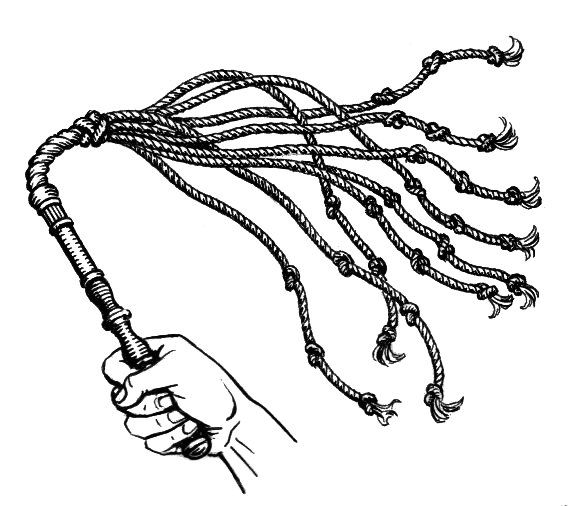Pain and Punishment at Sea

Having served on HMS Warspite during World War One, James Cox, hinted of the dangers related to allowing crimes to go unpunished at sea, when he said, ‘In a badly disciplined ship, everyone pleases themselves.’
A ship at sea is a precarious place to be. Every crew member needs to pull their weight and contribute to the smooth running of the vessel. Being many miles away from home also means being far from the rule of law and with that tantalising glimpse of freedom, a man’s mind can begin to wander. A captain can very easily lose his authority and in doing so, put the lives of his crew in jeopardy.
To ensure that discipline is maintained, harsh punishments have often been handed out to those who break the rules. Outside of offences listed in the Royal Navy’s Articles of War, the captain of the ship was to decide on how to deal with any breach of discipline ‘according to the laws and customs in such cases used at sea’, leaving a lot of room for interpretation – you certainly wouldn’t want to break any rules when the captain had a bad day!
Quite often, punishments handed out in the past could be considered incredibly brutal when looking through modern eyes. One such punishment in the 18th Century was the wooden horse. Constructed out of timbers up to 8 feet long, two planks of wood were brought together to form a sharply angled ‘A’ shape, which would then have added to them further pieces of wood to form a frame that would loosely resemble a horse. The seaman who had committed the offence would be sat atop of this frame with his hands tied behind his back, quite often with weights added. One further humiliation which also served to increase the severity of the pain would be to strap muskets to the miscreant’s legs to weigh him down even more and ‘stop the horse kicking him off’.
Perhaps the most well known punishment dealt out to sailors was the cat-o’-nine-tails. Nine cords of rope each with at least one knot tied in them, often created by the prisoner himself, just one lash with this instrument of torture could cause the skin to come off a person’s back.
Since this punishment was handed out in full view of the crew, it was only worth ‘letting the cat out of the bag’ for no fewer than a dozen lashes, enough to kill a sailor in poor health. If you were unfortunate enough to survive this ordeal, you would then have salt rubbed into your wounds further increasing the agony, (the salt would help to prevent infection of the wounds, though the average 18th Century sailor probably would not have been thinking about that.)
If a flogging from the cat sounds like a draconian sanction, consider, it was replaced a far more gruesome punishment – keelhauling. Originating around the 15th Century, a sentence to being keelhauled was effectively a death sentence in one of the most horrific ways imaginable.
A rope would be drawn underneath the ship from port to starboard with the offender tied to it. As the ship is sailing through the waves, the sailor’s very own crewmates would pull at the rope and lower him into the sea and underneath the ship until he re-emerged at the other end. The greatest pain would be caused by the ocean life that had grown along the keel of the ship. During long voyages, all manner of barnacles and shellfish begin to grow on the timbers of the ship’s hull and with the rope pulled tight against the ship, the sharp shells of these creatures would rip through the skin of the sailor, causing unbearable pain.
Back on board, the condemned would be allowed to catch his breath, and, if the captain saw fit, he would be sent back under again for another pass beneath the ship. He would be unlikely to survive his second trip beneath the waves. Compared with this, the cat-o’-nine-tails appears almost merciful.
Whilst many dreamed of a life on the high-sea, discovering foreign lands and avoiding the toil of the average man, it is well worth remembering that if they stepped out of line, the punishment would often be harsher than the offence itself.
